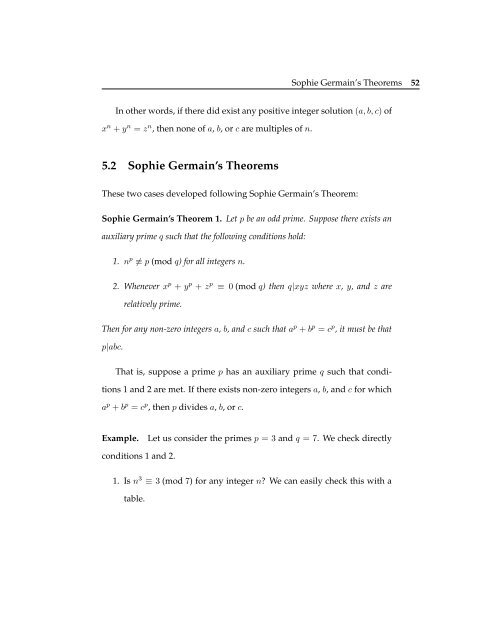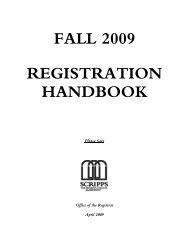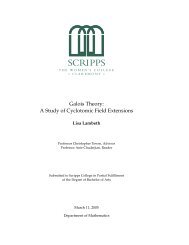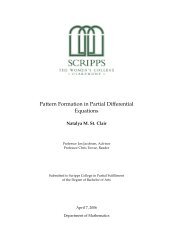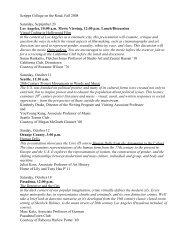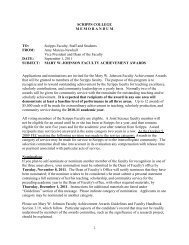Sophie Germain: mathématicienne extraordinaire - Scripps College
Sophie Germain: mathématicienne extraordinaire - Scripps College
Sophie Germain: mathématicienne extraordinaire - Scripps College
You also want an ePaper? Increase the reach of your titles
YUMPU automatically turns print PDFs into web optimized ePapers that Google loves.
<strong>Sophie</strong> <strong>Germain</strong>’s Theorems 52<br />
In other words, if there did exist any positive integer solution (a, b, c) of<br />
x n + y n = z n , then none of a, b, or c are multiples of n.<br />
5.2 <strong>Sophie</strong> <strong>Germain</strong>’s Theorems<br />
These two cases developed following <strong>Sophie</strong> <strong>Germain</strong>’s Theorem:<br />
<strong>Sophie</strong> <strong>Germain</strong>’s Theorem 1. Let p be an odd prime. Suppose there exists an<br />
auxiliary prime q such that the following conditions hold:<br />
1. n p ≢ p (mod q) for all integers n.<br />
2. Whenever x p + y p + z p ≡ 0 (mod q) then q|xyz where x, y, and z are<br />
relatively prime.<br />
Then for any non-zero integers a, b, and c such that a p + b p = c p , it must be that<br />
p|abc.<br />
That is, suppose a prime p has an auxiliary prime q such that conditions<br />
1 and 2 are met. If there exists non-zero integers a, b, and c for which<br />
a p + b p = c p , then p divides a, b, or c.<br />
Example.<br />
Let us consider the primes p = 3 and q = 7. We check directly<br />
conditions 1 and 2.<br />
1. Is n 3 ≡ 3 (mod 7) for any integer n We can easily check this with a<br />
table.


